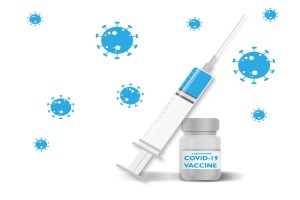
Rome: Almost 75 percent of the COVID-19 vaccine doses have been administered in just 10 countries with Africa having the lowest vaccination coverage at 2%, the World Health Organization informed at the G20 Health Ministers meeting here on September 5, 2021.
Terming this as “unacceptable”, WHO Director-General Dr. Tedros Adhanom Ghebreyesus warned the G20 ministers that many countries continue to face steep increases in cases and deaths, despite the fact that more than 5 billion vaccines have now been administered worldwide.
He made the following three concrete requests to the G20 members:
- support the achievement of WHO’s global vaccination targets, by swapping near-term delivery schedules with COVAX, fulfilling their dose-sharing pledges by the end of this month at the latest, and facilitate the sharing of technology, know-how and intellectual property to support regional vaccine manufacturing.
- support the development and adoption of a legally binding international agreement on pandemic preparedness and response, as a commitment to future generations.
- strengthen WHO by supporting initiatives that strengthen, not weaken, its mandate, and by committing to a historic reversal of the current imbalance between assessed and voluntary contributions.
According to a release issued today, WHO’s global targets are to support every country to vaccinate at least 10 percent of its population by the end of this month, at least 40 percent by the end of the year, and 70 percent of the world’s population by the middle of next year.
“We can still reach these targets, but only with the commitment and support of G20 countries,” Dr. Ghebreyesus said, and told the G20 as the largest producers, consumers and donors of COVID-19 vaccines, that they held the key to achieving vaccine equity and ending the pandemic.
“We can never allow a pandemic on this scale to happen again. And we can never allow an injustice like this to happen again,” he said.
Also read: Intensified collaboration needed to prevent future pandemics
The WHO D-G identified four critical areas for action:
- Better global governance. There are several proposals for new governance structures. WHO strongly supports high-level political engagement with pandemic preparedness and response. It’s essential that any new mechanism is inclusive, equitable and accountable. It believes an international instrument on pandemic preparedness and response will strengthen the foundation for global cooperation, setting the rules of the game, and enhancing solidarity among nations. “An every-nation-for-itself approach did not work this time, and it won’t work next time,” Dr. Ghebreyesus said.
- More and better financing for national and global preparedness and response. Crucially, any financing facilities must be built using existing financial institutions, rather than creating new ones that further fragment the global health architecture.
- Better systems and tools, across the One Health spectrum. Already, WHO has taken steps to start building some of those tools. “As you know, together with Chancellor Merkel, I had the honour of opening the WHO Hub for Pandemic and Epidemic Intelligence in Berlin last week, and several other initiatives are in development,” Dr. Ghebreyesus said.
- A strengthened, empowered and sustainably financed WHO at the centre of the global health architecture, to fully realise the Organization’s broad constitutional mandate.
With 194 Member States and 152 country offices, WHO has unique global reach and unique global legitimacy. However, Dr. Ghebreyesus pointed out that over several decades, it had been progressively weakened by a debilitating imbalance between assessed and voluntary, earmarked contributions that distort our budget and constrain our ability to deliver what our Member States expect of us.
“Redressing this imbalance is critical if WHO is to be the independent and authoritative institution the world needs it to be,” he said.
– global bihari bureau





